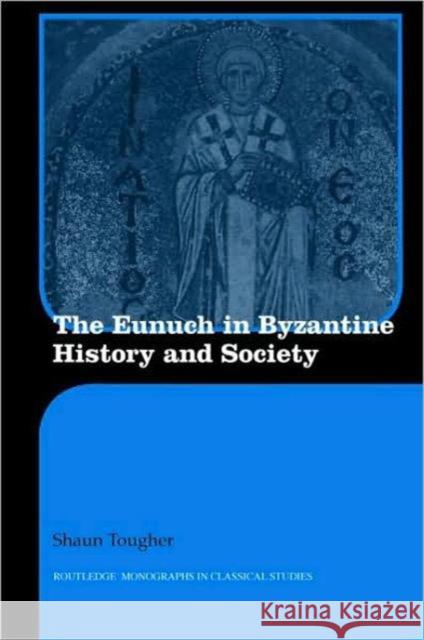The Eunuch in Byzantine History and Society » książka
The Eunuch in Byzantine History and Society
ISBN-13: 9780415425247 / Angielski / Twarda / 2008 / 244 str.
The Eunuch in Byzantine History and Society
ISBN-13: 9780415425247 / Angielski / Twarda / 2008 / 244 str.
(netto: 746,32 VAT: 5%)
Najniższa cena z 30 dni: 725,69
ok. 16-18 dni roboczych.
Darmowa dostawa!
The existence of eunuchs was one of the defining features of the Byzantine Empire. Covering the whole span of the history of the empire, from the fourth to the fifteenth centuries AD, Shaun Tougher presents a comprehensive survey of the history and roles of eunuchs, making use of extensive comparative material, such as from China, Persia and the Ottoman Empire, as well as about castrato singers of the eighteenth century of Enlightenment Europe, and self-castrating religious devotees such as the Galli of ancient Rome, early Christians, the Skoptsy of Russia and the Hijras of India. The various roles played by eunuchs are examined. They are not just found as servile attendants; some were powerful political players - such as Chrysaphius who plotted to assassinate Attila the Hun - and others were prominent figures in Orthodoxy as bishops and monks. Furthermore, there is offered an analysis of how society thought about eunuchs, especially their gender identity - were they perceived as men, women, or a third sex? The broad survey of the political and social position of eunuchs in the Byzantine Empire is placed in the context of the history of the eunuch in general. An appendix listing key eunuchs of the Byzantine Empire describing their careers is included, and the text is fully illustrated.
The existence of eunuchs was one of the defining features of the Byzantine Empire. Covering the whole span of the history of the empire, from the 4th to the 15th centuries AD, Shaun Tougher presents a comprehensive survey of the history and roles of eunuchs, making use of extensive comparative material, such as from China, Persia and the Ottoman Empire, as well as about castrato singers of the eighteenth century of Enlightenment Europe, and self-castrating religious devotees such as the Galli of ancient Rome, early Christians, the Skoptsy of Russia and the Hijras of India.
The various roles played by eunuchs are examined. They are not just found as servile attendants; some were powerful political players – such as Chrysaphius who plotted to assassinate Attila the Hun – and others were prominent figures in Orthodoxy as bishops and monks. Furthermore, there is offered an analysis of how society thought about eunuchs, especially their gender identity - were they perceived as men, women, or a third sex?
The broad survey of the political and social position of eunuchs in the Byzantine Empire is placed in the context of the history of the eunuch in general. An appendix listing key eunuchs of the Byzantine Empire describing their careers is included, and the text is fully illustrated. This book will be a major contribution to the study of the subject, of interest also to the non-specialist.











